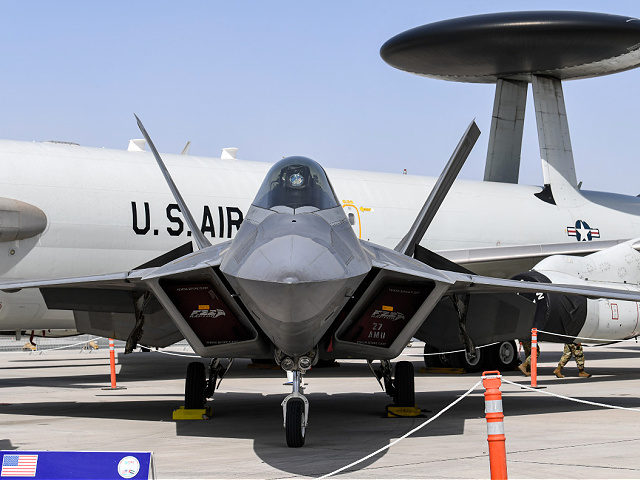The U.S. State Department said this week it recently fined U.S. defense contractor Honeywell $13 million after the company was found to have “harmed national security” by sharing sensitive information about U.S. military aircraft with China and other countries.
The U.S. State Department said on May 3 it had reached a settlement with Honeywell on 34 charges related to 71 drawings it shared with China, Taiwan, Ireland, Canada, and Mexico from 2011-2015. Honeywell’s sharing of the documents violated the U.S. Arms Export Control Act and the U.S. International Traffic in Arms Regulations.
“The U.S. Government reviewed copies of the 71 drawings and determined that exports to and retransfers in the PRC [People’s Republic of China] of drawings for certain parts and components for the engine platforms for the F-35 Joint Strike Fighter, B-1B Lancer Long-Range Strategic Bomber, and the F-22 Fighter Aircraft harmed U.S. national security,” the charging document read.
The 71 drawings included “technical data that contained engineering prints showing dimensions, geometries, and layouts for manufacturing castings and finished parts for multiple aircraft, gas turbine engines, and military electronics,” the U.S. State Department said in a statement on Monday.
“Honeywell allegedly used a file-sharing platform to inappropriately transmit engineering prints … for manufacturing castings and finished parts for multiple aircraft, military electronics and gas turbine engines,” Defense News reported on May 4. The materials allegedly shared by Honeywell included details of the following U.S. military equipment, according to the news site:
[T]he F-35 Joint Strike Fighter, the B-1B Lancer long-range strategic bomber, the F-22 fighter, the C-130 transport aircraft, the A-7H Corsair aircraft, the A-10 Warthog aircraft, the Apache Longbow helicopter, the M1A1 Abrams tank, the tactical Tomahawk missile; the F/A-18 Hornet fighter, and the F135, F414, T55 and CTS800 turboshaft engines.
The U.S. State Department said it will not debar Honeywell for its violations because the company “voluntarily disclosed” its sharing of the drawings with foreign countries to the U.S. government starting in 2015.
“Honeywell also acknowledged the serious nature of the alleged violations, cooperated with the Department’s review, and instituted a number of compliance program improvements during the course of the Department’s review,” the U.S. State Department said on May 3. “For these reasons, the Department has determined that it is not appropriate to administratively debar Honeywell at this time.”
Honeywell has significantly expanded its presence in China over the past two decades. It moved its Asia-Pacific headquarters from Singapore to Shanghai in 2003 and paid $100 million to secure the rights to the land on which the property was built in 2017, the South China Morning Post reported on May 5.
“In February, Honeywell was awarded a contract with Chinese firm Sepco Electric Power Construction Corp to supply telecommunications and security systems for the King Salman International Complex for Maritime Industries and Services, a shipyard in Saudi Arabia,” the Hong Kong-based newspaper noted.

COMMENTS
Please let us know if you're having issues with commenting.